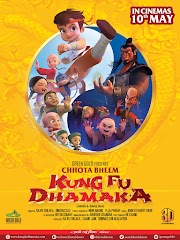Copyright
Copyright is one tool to prevent the intellectual property of a person from being pirated. It is the legal right granted to a creator of any intellectual property to be able to reproduce and redistribute his work, at his discretion. Although back then, and even today, copyright doesn’t exactly prevent piracy, it does protect the legal interests of the party negatively affected and prescribe legal consequences for the perpetrator, in the event that copyright infringement(piracy) does occur.
Copyright holders routinely invoke legal and technological measures to prevent and penalize copyright infringement.
Filming a movie
An act of piracy that involves recording a movie or a video, especially without prior authority from the creator or purchased license to do so. The most notable method of movie piracy is known as camcorder piracy, in which a camcorder or a small recording device is often snuck into a theatre, and the entire movie, recorded onto the camcorder, is distributed online via the internet, either on pirated sites for free or sold on gray markets.
Websites to pirate movies
Websites that host pirated content are one of the most popular sources to acquire pirated content, as most of these sites offer the content for free, which sees them experience a lot of network traffic due to their popularity, and the sheer number of users accessing their domains to get their hands on the latest pirated songs, games or movies.
While several governments have encouraged ISPs(internet service providers) to block these sites by default on their services, these sites are still regularly visited through the use of VPNs(Virtual Private Networks). Some of the most popular sites to pirate movies are –
- The ‘YTS’ domains
- The Pirate Bay
- Torrentz2
Law of copyright in India
To handle copyright and copyright infringement related disputes, the Indian Constitution has the Copyright Act, 1957, which acts as the main statute for all copyright-related laws in India. Under section 13 of the Act, copyright protection is conferred on literary works, dramatic works, musical works, artistic works, cinematograph films, and sound recordings.
The Copyright Act, 1957 handles protection of copyrighted material via classification of the same into two categories of rights, those being –
- Economic Rights: The scope of this Act falls under originally conceptualized work including literary works, dramatic works, musical works, artistic works, cinematograph films, and sound recordings. The owners of these intellectual properties and works are given exclusive rights which they can exercise when it comes to the reproduction and distribution of these works, and to have a share in the profit of any sales of the product made by a licensed third-party.
- Moral Rights: Section 57 of the Act splits moral rights into two basic rights, right of paternity and right of integrity. The former enables the original creator of the intellectual property to be able to claim ownership of it and prevent any others from claiming ownership. The latter enables the creator to restrict any and all ‘distortion, mutilation or other alterations of his work, or any other action in relation to said work’ which may damage his reputation.



![[Akshay Kumar] Sooryavanshi full movie download filmyzilla filmywap isaimini in 480p, 720p HD](https://blogger.googleusercontent.com/img/b/R29vZ2xl/AVvXsEgLn1hXMv_p_RVhs3fu6T3U2fhrlIgPA4SLzVAgfUWiwIBVnbNsbaI4ODH4CoYdHCTrzkk3IoM8rHd-te4wtlFNmi5DUGfq1aePNMveiVCwxe4iEHtIbugmITfUjQotPv-VFngtOUtJPJr9/w180/download+%25281%2529.jpeg)





0 Comments